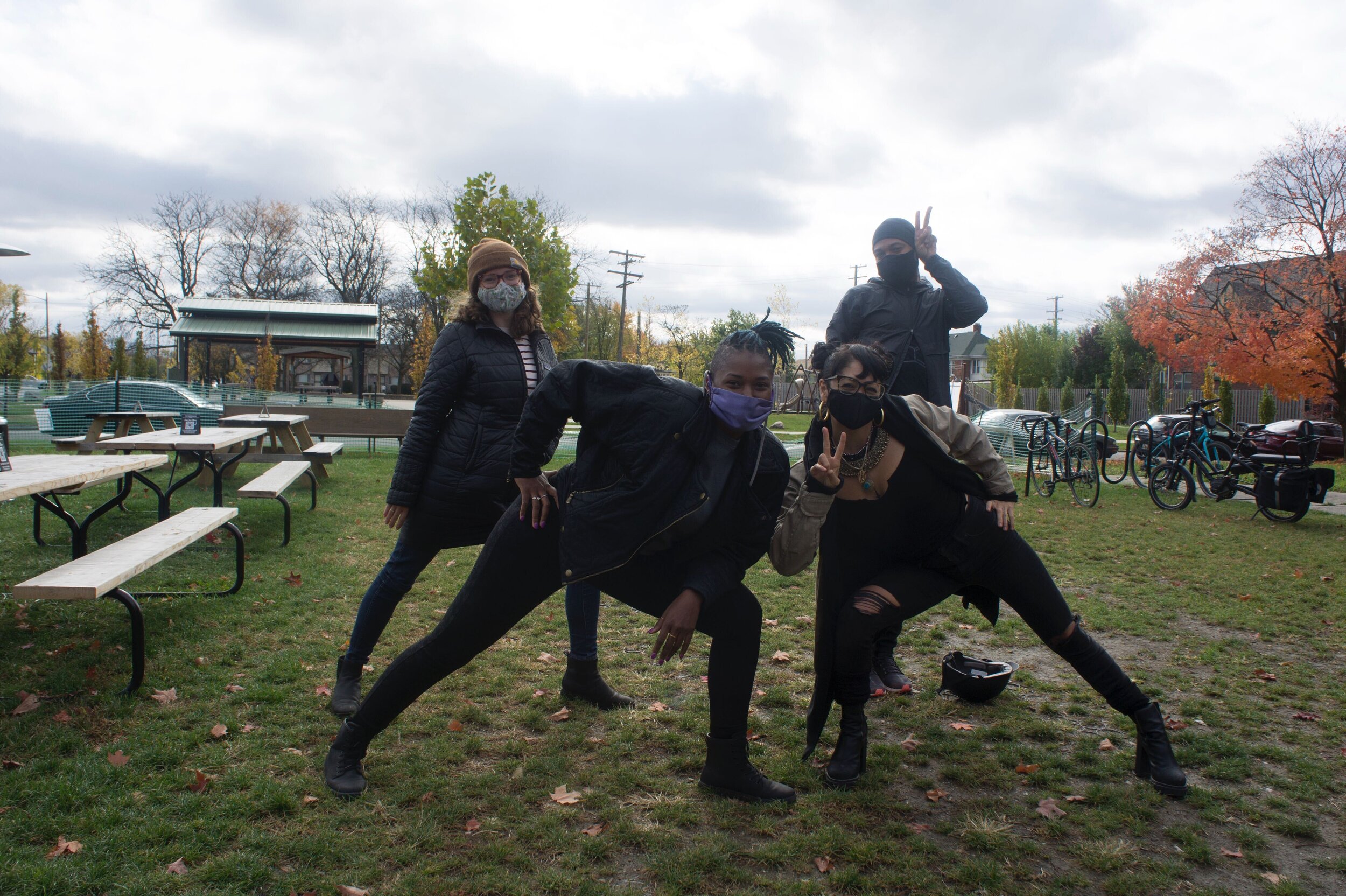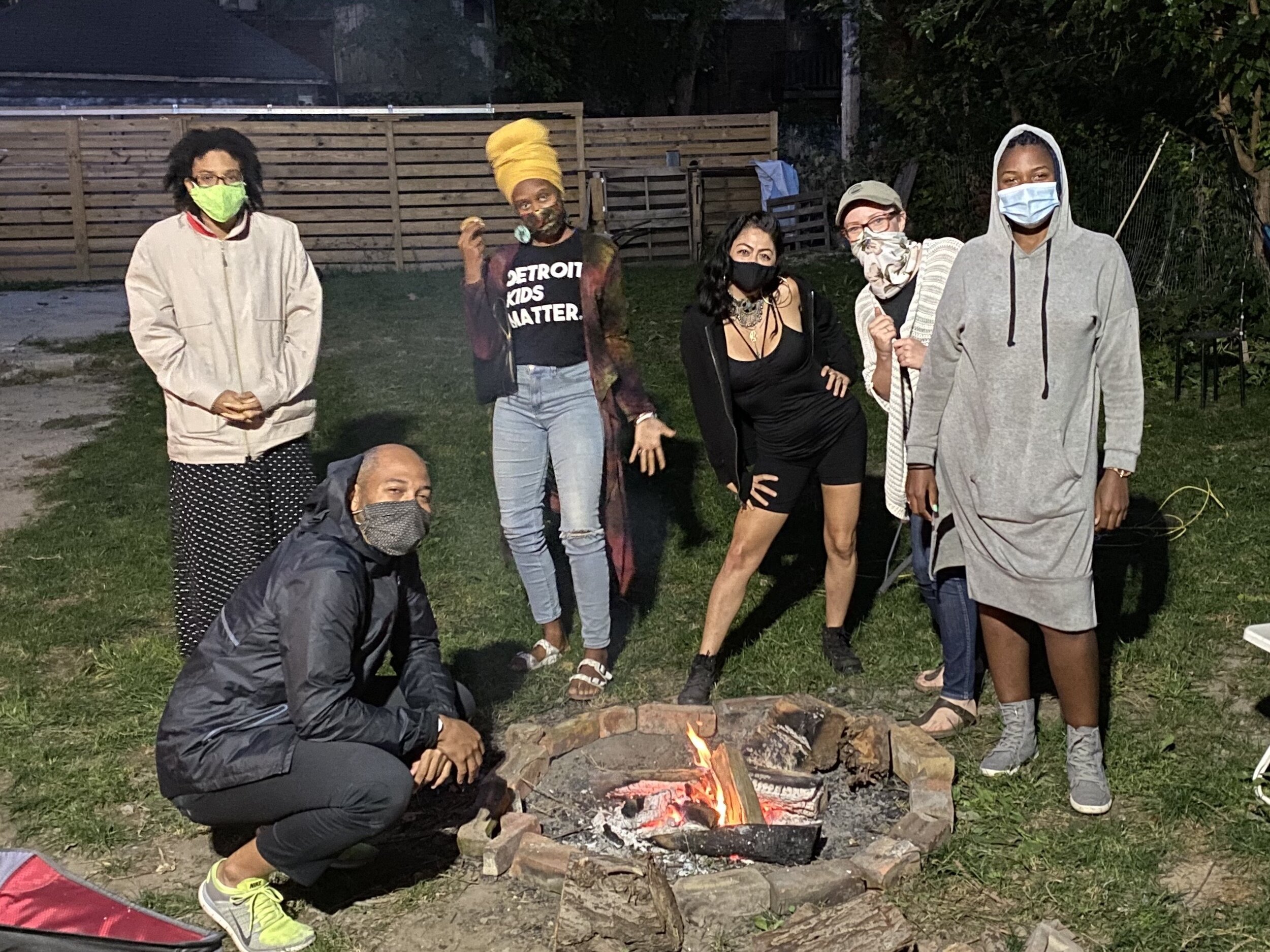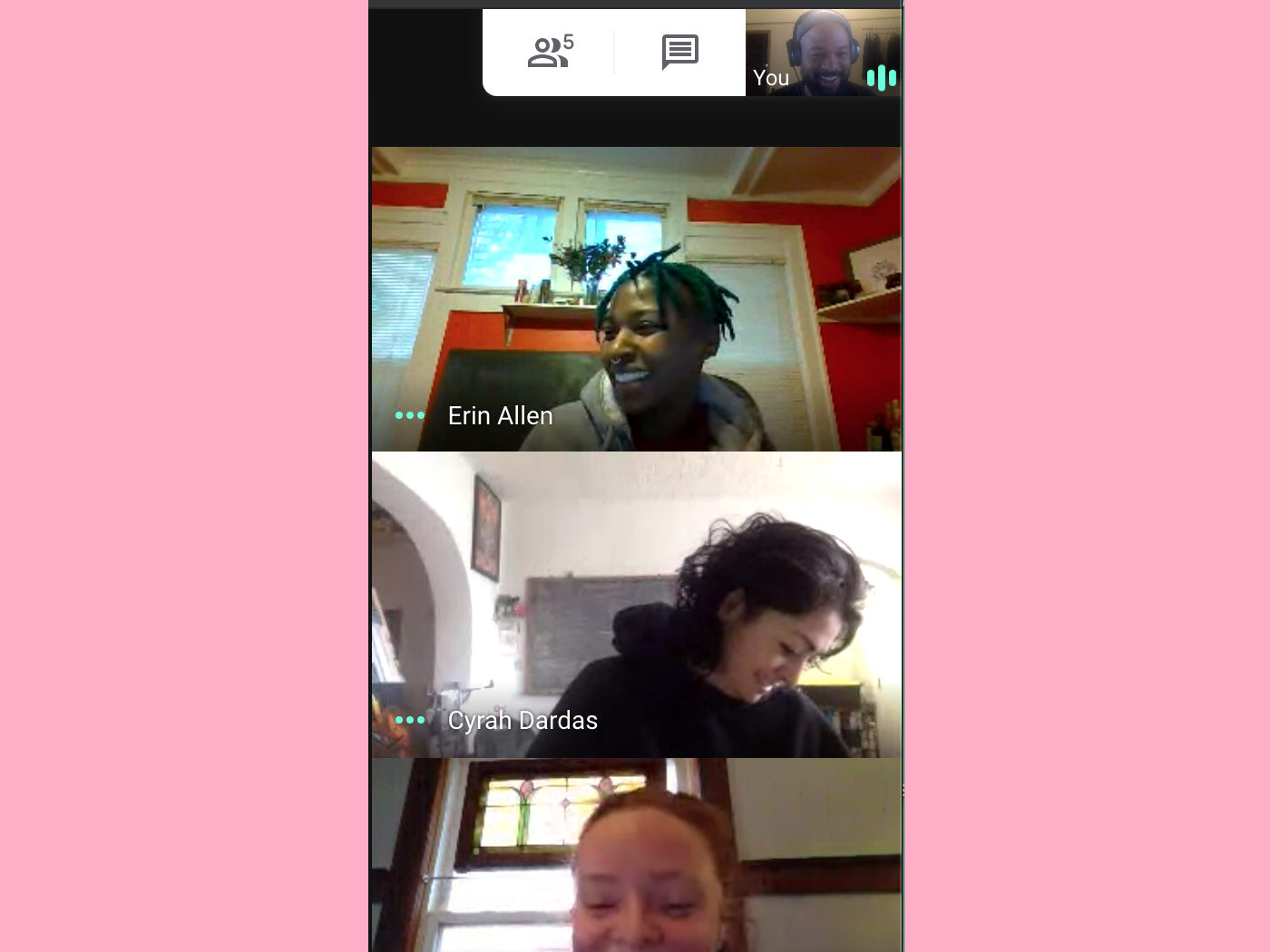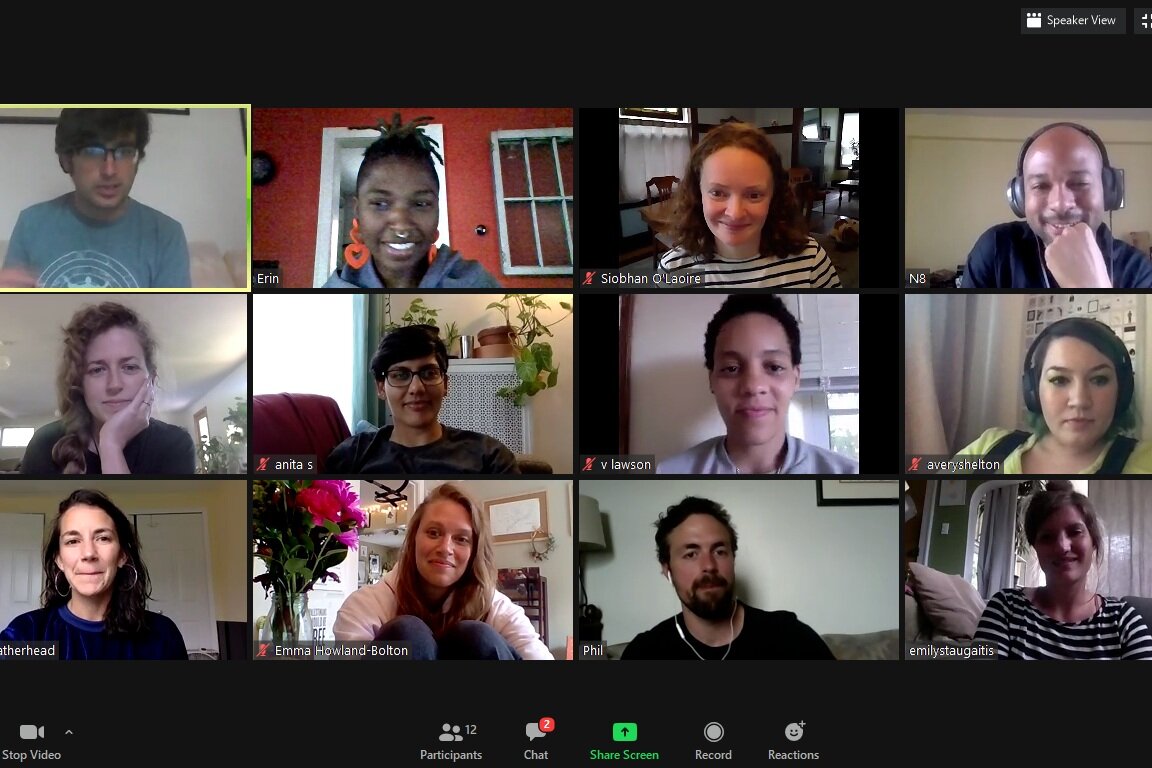Centering Care in the Classroom
It is imperative that we all prioritize care, connection and wellbeing. Join us in bringing this process into your class or learning space.
Expression Through Line is a wonderful activity to playfully create space to check in on students’ individual and collective wellbeing. Through an approachable medium students use art to process and express their emotions. It is a deceptively simple lesson that helps students name and normalize their emotions while also teaching students how to reflect on what art is trying to invoke.
Bonus: you don't need to be an art teacher to make it happen!
Centering Care with The Boggs School:
“Its wild you can do that with just one line!”
This lesson was born during our latest AIR partnership. We teamed up with our friends at the James and Grace Lee Boggs School to deliver our media-based programming based on the theme: Community as Care. We embarked on delivering the AIR program virtually as we all navigated uncharted territory surrounded by grief, loneliness and a tumultuous social and political context as COVID reached new heights in the darkness of winter. Lead Teaching Artist, Cyrah Dardas, focused less on “creating” and more on cultivating a virtual space centered on care through the use of art and media. She developed the lesson Expression Through Line to create the space for Boggs students to share their emotions through the use of art and normalize talking about our emotions with each other. As we continue to navigate the collective trauma, change and ongoing grief of the pandemic, we invite you to center care and connection with young people using the Expression Through Line lesson!









